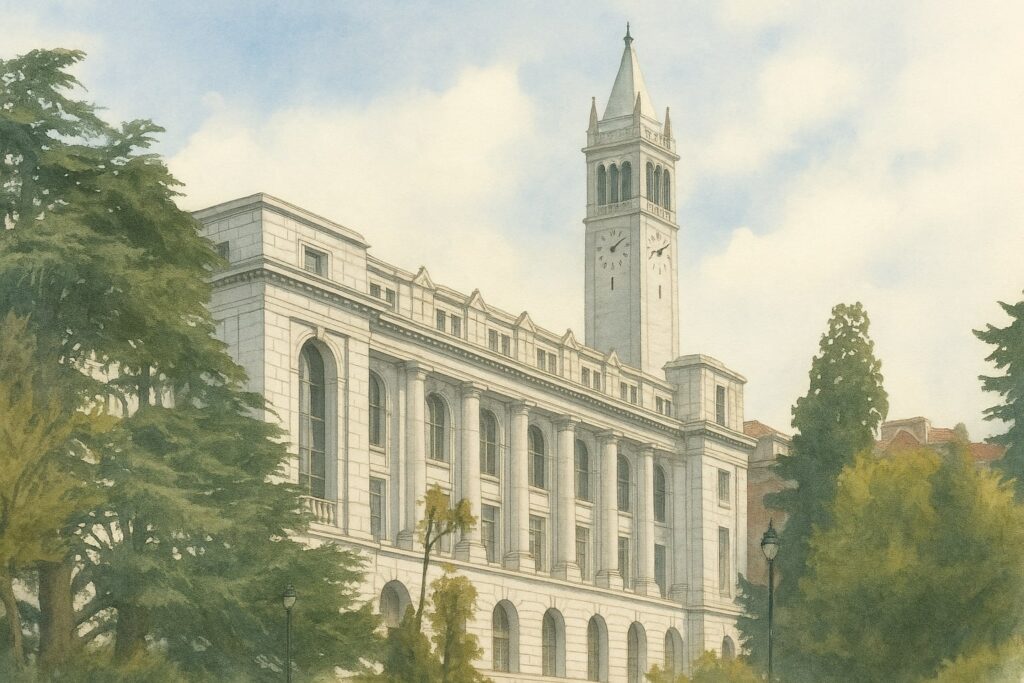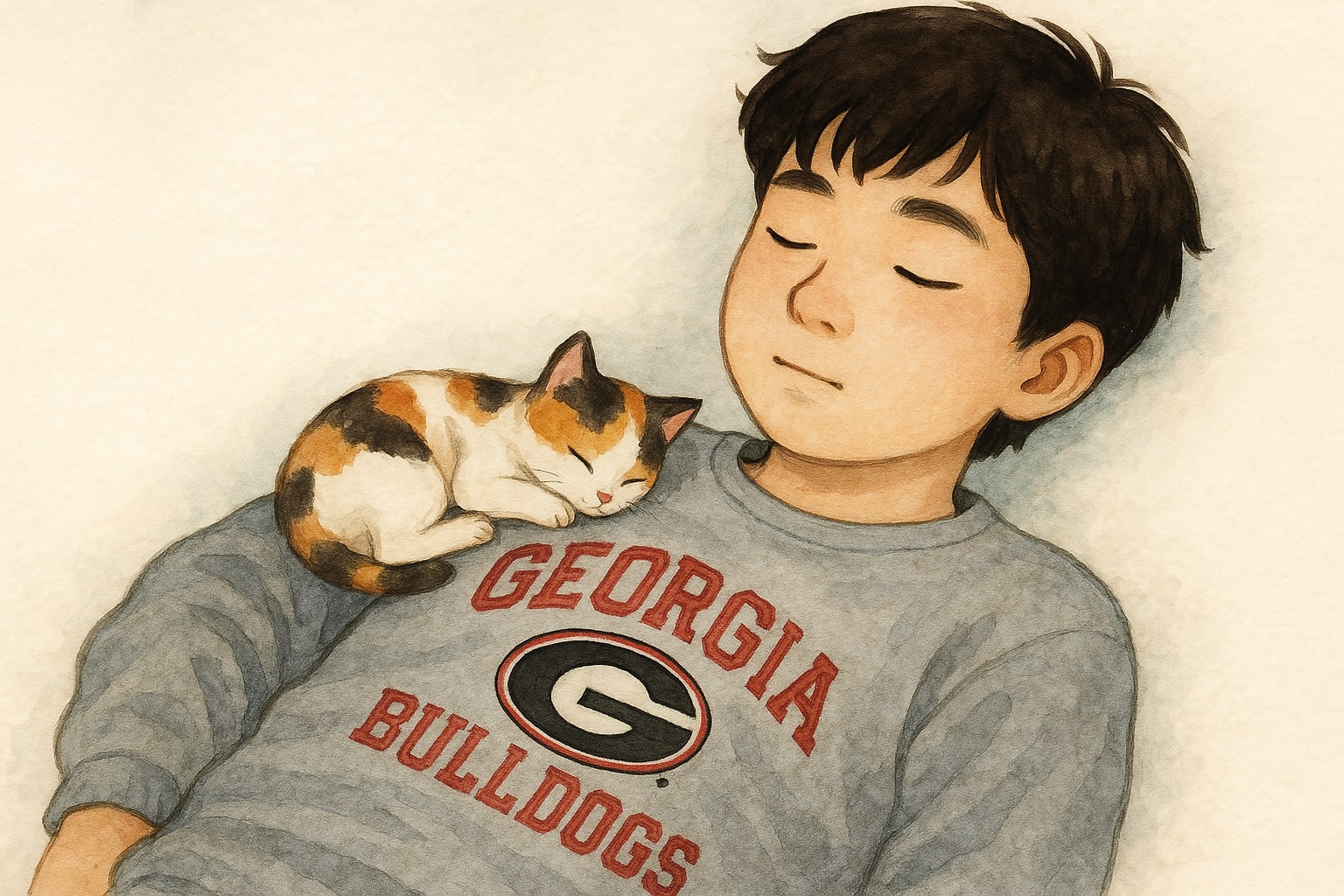“You’re Going to Berkeley, Ain’t Ya?”
🦋🦋🦋

Reflecting back on my first years in the States, I was baffled by how my parents thought it was a good idea to put me in a school when my English was limited to a few scattered words. The way I ended up in Atlanta was equally bewildering. My folks had waited six long years for our immigrant visas—sponsored by my uncle, an Air Force officer stationed in Warner Robins, Georgia—to finally come through. Yet, they only informed me of our impending departure a day before we were set to leave.
I recall being in the midst of a street baseball game with my neighborhood buddies, under a hill overlooking Seoul’s Han River, when my dad interrupted the game. “Hey, son,” he said, like it was no big deal, “go home and pack your stuff, we’re off to America tomorrow.”
To my disbelief, I suddenly found myself eating all alone in a boisterous cafeteria filled with the strange aroma of unfamiliar foods, the vibrant energy of my life in Korea gone in mere days. Even worse, I was an odd one out, essentially prime fodder for ridicule by the school’s bad apples.
I initially kept quiet about my experiences. It wasn’t until two years later, by which time I had adapted both culturally and linguistically to living in the States, that I finally opened up to my family about the full scope of the loneliness and bullying I had endured in school. And just before heading off to college, I revisited the topic.
This time, my goal was to truly understand my parents’ rationale behind enrolling me in school as soon as we arrived in Atlanta, despite my complete lack of English proficiency. However, my attempt at a serious conversation with my lovely folks, who had an uncanny knack for being both infuriating and funny without meaning to, went something like this:
“Mom and Dad, now that I’m leaving home soon, I think it’s high time I ask you guys this question. How could you’ve sent me to school when I couldn’t speak a lick of English? Seriously, what were you guys thinking?”
“Well, we consulted this educator, and she told us that kids can pick up a new language very quickly, that you’d be speaking English in no time at all. Isn’t that so, hubby?”
“Yeah, she said it would take three months, tops.”
“Three months? Are you kidding? It took me two whole years to finally get comfortable talking in English, and my accent is still atrocious!”
“Oh, give us a break. Your younger sisters sure didn’t seem to have any problems. They were speaking English fluently within months.”
“Yeah, one of ‘em even started composing limericks after just three months, if my memory serves.”
“See, how were we supposed to know that you’d be a late bloomer? We ain’t no Nostradamus.”
“Nope, we surely ain’t.”
“Limericks, fiddlesticks! I’d love to see proof of that. But, you know what, let’s put that aside for now. Suppose I wasn’t a slow learner and managed to speak fabulous English in two measly shakes. Even then, what about those first three months, huh?
“Did it ever cross your minds that I might be lonely and miserable, not being able to talk to anyone at school for those 90 long days? Did you guys ever stop to think about how traumatic that could be for your little bairn?
“Plus, shouldn’t you have given me a heads-up? Or, even better, hired an English tutor to help me prepare before we moved to the good ole U.S. of A.?”
“Hubby, did he just say ‘bairn’?”
“Yeah, I heard that. I had no idea we were Scottish.”
“Ugh, please stick to the topic at hand, thank you.”
“Well, you’re the one who threw us off track.”
“Yeah, why say bairn when a simple ‘child’ or ‘son’ would do?”
“Okay, you know something, I’m sorry I said bairn. Maybe I’d been reading one too many Robert Burns poems. Are you two happy now? Can we get back to my questions, if you please?”
“Uh, first of all, do you have any idea how expensive English tutors are in Korea?”
“Yeah, we damn sure couldn’t have afforded one, that’s for sure.”
“Next, you were just an immature child then—or should I say, a bairn. It wouldn’t have made any sense for us to discuss immigration matters with you, especially since you weren’t exactly the sharpest tool in the shed, sweetheart.”
“Hear, hear.”
“Dad!”
“Come on, son, don’t you remember you tried to pack the TV? When I asked why, you said, ‘I’m taking it ‘cause I still wanna watch Korean cartoons even when I’m in America, duh~.’ I tell ya, you were definitely a few rolls of kimbap short of a picnic then. I was seriously worried about you.”
“Tell me about it. Einstein, our second bairn sure~ly was not, the good Lord knows. And about the ‘trauma’ thing that you casually mentioned, well, when your father and I were little, we only lived through the Korean War, so what do we know about trauma, I mean, really.”
“Yeah, really. You know what, son, here’s an impromptu limerick just for you, ahem:
Oh, trauma we suffered a ton
In grim war that nobody won
No food anymore
Just ruins galore
Blame our folks? Nay—not like our son!”
“Oh, scoot over, James Joyce, here comes my hubby. Slip me some skin!”
“You’re too kind, wifey, I try.”
“Aaaargh! I swear, you two are so dadgum something else. Mine and your plights are like comparing Washington apples to Florida oranges! For starters, grannies and gramps weren’t responsi—”
“Last but not least, you’re going to Berkeley, ain’t ya? That’s a mighty fine school you’ve got there. Lots of Nobel Prize winners there, I hear. I say everything turned out fine and dandy for our late-blooming second bairn, if you ask me.”
“Yeah, I hear that the guys who built them Apple computers and Intel microchips went to Berkeley, too.”
“Honey, don’t forget that our handsome Falcons quarterback went there as well.”
“Yeah~ I forgot Steve Bartkowski went there, too! I do declare we did a hella fine job raising you, son. Shouldn’t you rather be thanking us right now?”
Oh, Lord, give me Herculean strength with these two!

